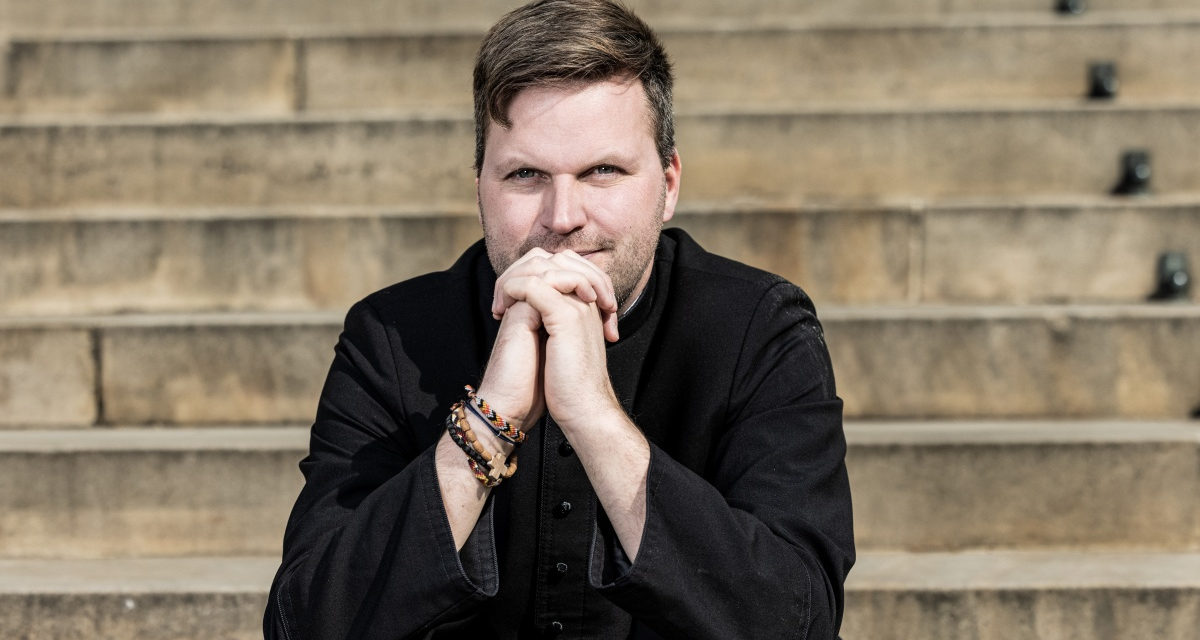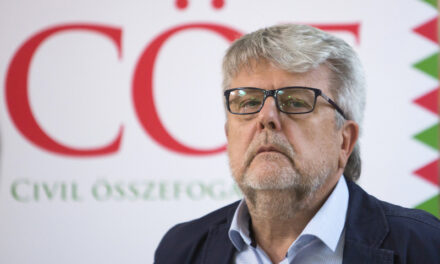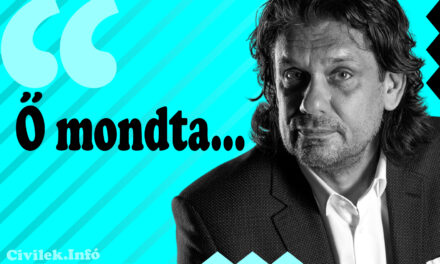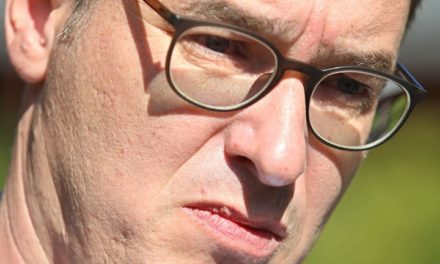In the previous twelve years, the government dealt with many historical injustices against the churches, says Catholic priest Bese Gergő to mandiner.hu, who believes that a possible opposition takeover would put the churches and the faithful in a very bad situation. The Eucharistic Congress and education are also discussed.
He first revived the memories of the Eucharistic Congress: "one month after the world event, the memories are still alive in me," he said. During the congress, the center of the Catholic Church moved to Budapest. Every continent was represented, and most of the colorful programs were available to everyone free of charge. Before, I was skeptical about the willingness to participate, but on Thursday evening, at the Eucharistic Adoration held in St. Stephen's Basilica, I already felt that something seemed to be moving. A huge crowd prayed and glorified the Lord, most of them had to be in the square in front of the basilica to follow the events on a projector. And on Saturday, the crowd seen on Margitsziget predicted that hundreds of thousands of people will be present at the candlelight procession beyond all expectations. It was so. The beginning of the procession arrived at Hősök tér, when the end was still at Deák tér. So many people wanted to meet Jesus. During his visit to Budapest for a few hours, Pope Francis was able to see that
In this corner of Europe, you can still see many tens of thousands of people praying, and among them many, many thousands of young people.
We need the "mass events". The simple believer, especially in the countryside, can often feel lonely in the big church, where eight to ten people gather on weekdays, and on Sundays there are slowly more empty seats than there are people present at the holy mass. Unfortunately, we can reach a small part of society with Örömhír, and we are still looking for the channel to reach young people, because their proportion in our communities is very small. But there is progress! Due to the fact that kindergartens and elementary schools have largely been placed under church maintenance, the children can get to know a Church that smells of life through religious education.
Through Holy Masses and liturgical acts, we introduce them to the mysteries, which leaves no one untouched. If we manage to broaden their worldview, learn to pray, form a correct image of God, and contribute to the sacraments, then we have not worked in vain. The visible result of this conscious construction that lasted for more than ten years was that many young people participated in the congress. Of course, we are only at the beginning of the journey, we need another fifty years, and I hope that we will also live to see the harvest.
Gergő Bese, who was also a school chaplain, believes that a teacher can always imagine a better situation than the one he is currently in. This is no different now. The salary issue should be settled, there was a serious salary increase in 2013, but now is the time to continue. Unfortunately, there is a shortage of teachers. Administration has never been my forte. As a manager and head of class, I always had to face the fact that more time is spent on paperwork and going through unnecessary circles than on going through serious questions. The mandatory number of hours would only be acceptable if you didn't have to go to substitute, because then you no longer have 22 hours, but 30-35, and we haven't even talked about the time spent on preparation. Where is the 40 hour work week? By the way, there is not only a shortage of teachers, but also a shortage of doctors, nurses, policemen, firefighters, soldiers, priests and skilled workers.
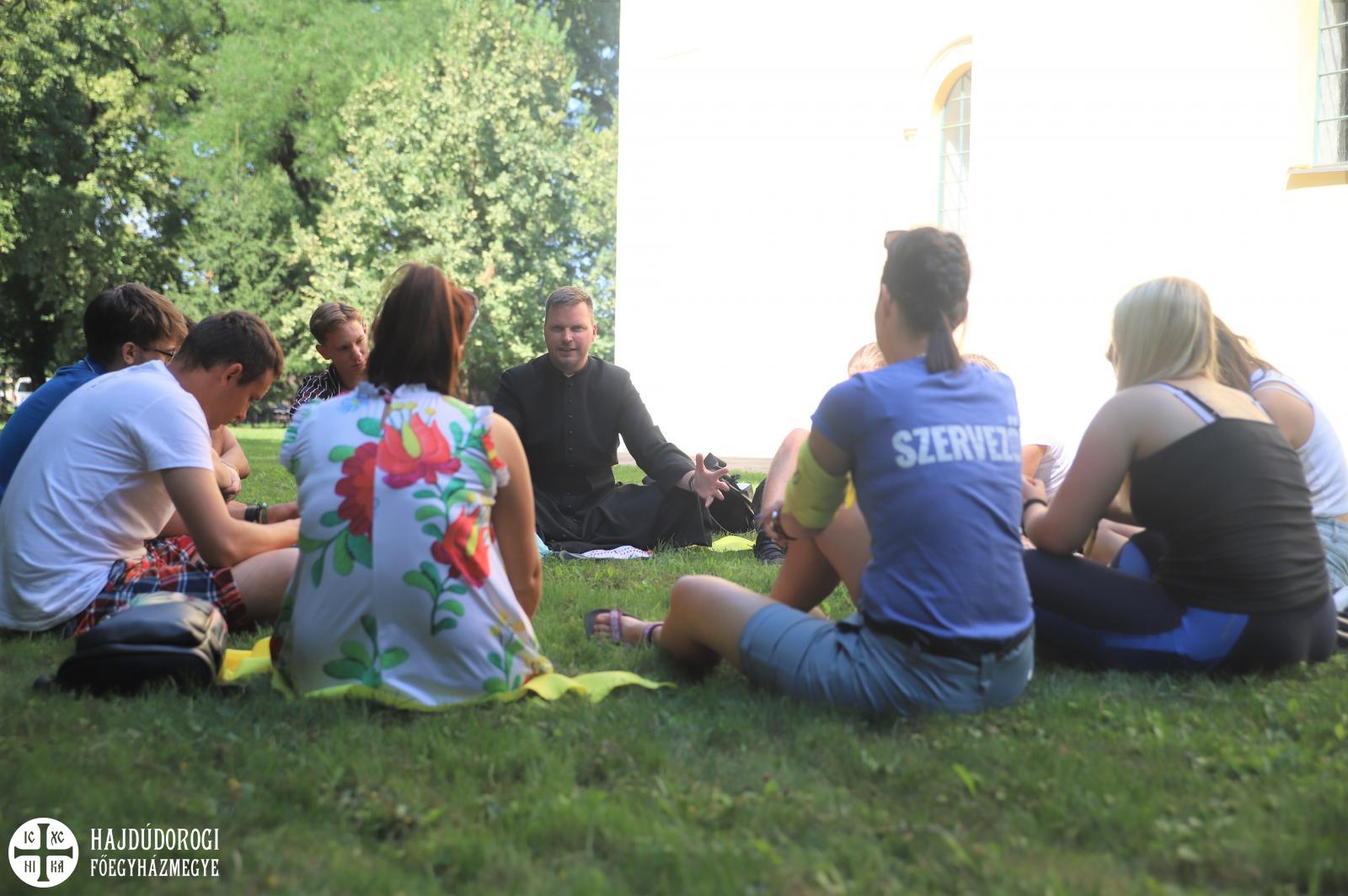
Father Gergő Bese (1983), parish priest from Dunavecs, school chaplain, influencer/Source: Archdiocese of Hajdúdorogi
The shapers of the 21st century do not see their path in service professions. Everyone wants to make a lot of money, preferably with little work. They don't want to make sacrifices for others, they don't want to give their lives for noble goals. However, the profession is what we dedicate our whole life to, and work is the 4-6-8 hours we work in it, and then we live our free time as a completely different person. There is a big difference between the two. Unfortunately, the social perception of the service professions is not really friendly either. I hear parents talking about teachers, police officers, doctors. A change should be achieved in this matter, so that serious professions can be respected again. If I look at it this way, material appreciation is in second place.
In the past 12 years, the churches received support even after the "peace time" between the two world wars. In my opinion, this is the settlement of the historical injustices that our churches suffered during the Second World War, during the communist rule and after the regime change. We have just reached the point where we have roughly managed to fix most of our educational institutions in terms of infrastructure.
The restoration of churches, parishes, monasteries, cemeteries, and other religious memorials has also begun, which will consume an enormous amount of money by the time we reach the end, but after decades of neglect, the nation's public treasures must at some point be renewed. Because no one thinks that renovated church properties are only for the benefit of believers! Tourism gains a lot from the renovated monuments. Several settlements were able to join the circulation of domestic and international tourism in the previous years, but for this they also had to build suitable accommodation and service facilities in order to carry out the complex work of renewal.
A possible change of government would mean the end of this work. We know the attitude of the opposition parties who want power towards faith, religion, and church education. It has already been stated that they would abolish the doctrine of faith and morals in state institutions, retroactively review the admission of schools to church maintenance, and suspend the Vatican-Hungarian basic agreement. If all of this were to be followed, the livelihood of many thousands of families would be endangered (religious teachers, cantors, pastoral assistants, heads of institutions, and so on), the maintenance of rural parishes would become almost impossible, and the work of the last ten years involving many sacrifices would be thrown out the window. And all this is just what we already know, but what else could be in their heads!
Source and full article: mandiner.hu
Photos: Árpád Földházi

